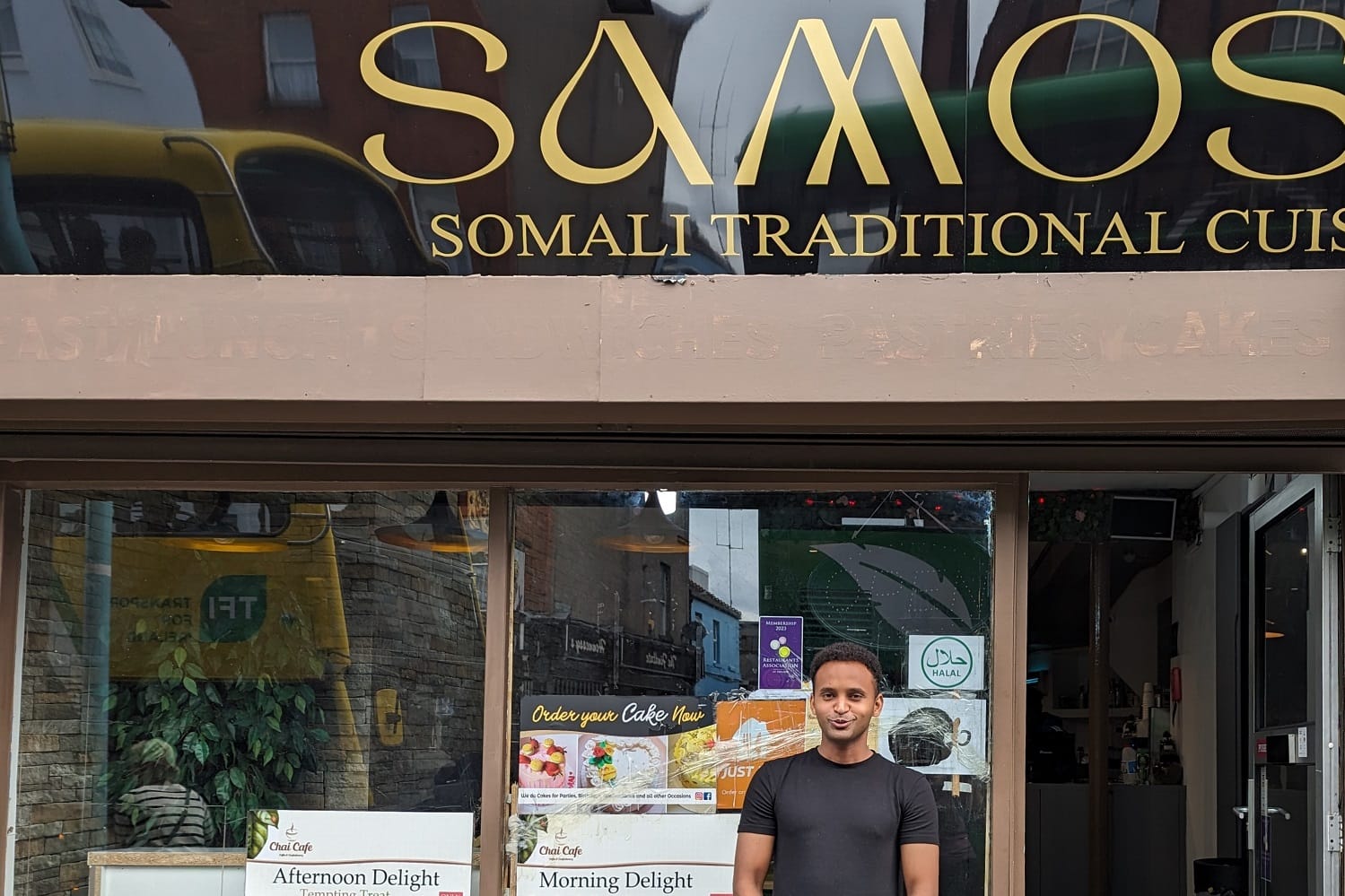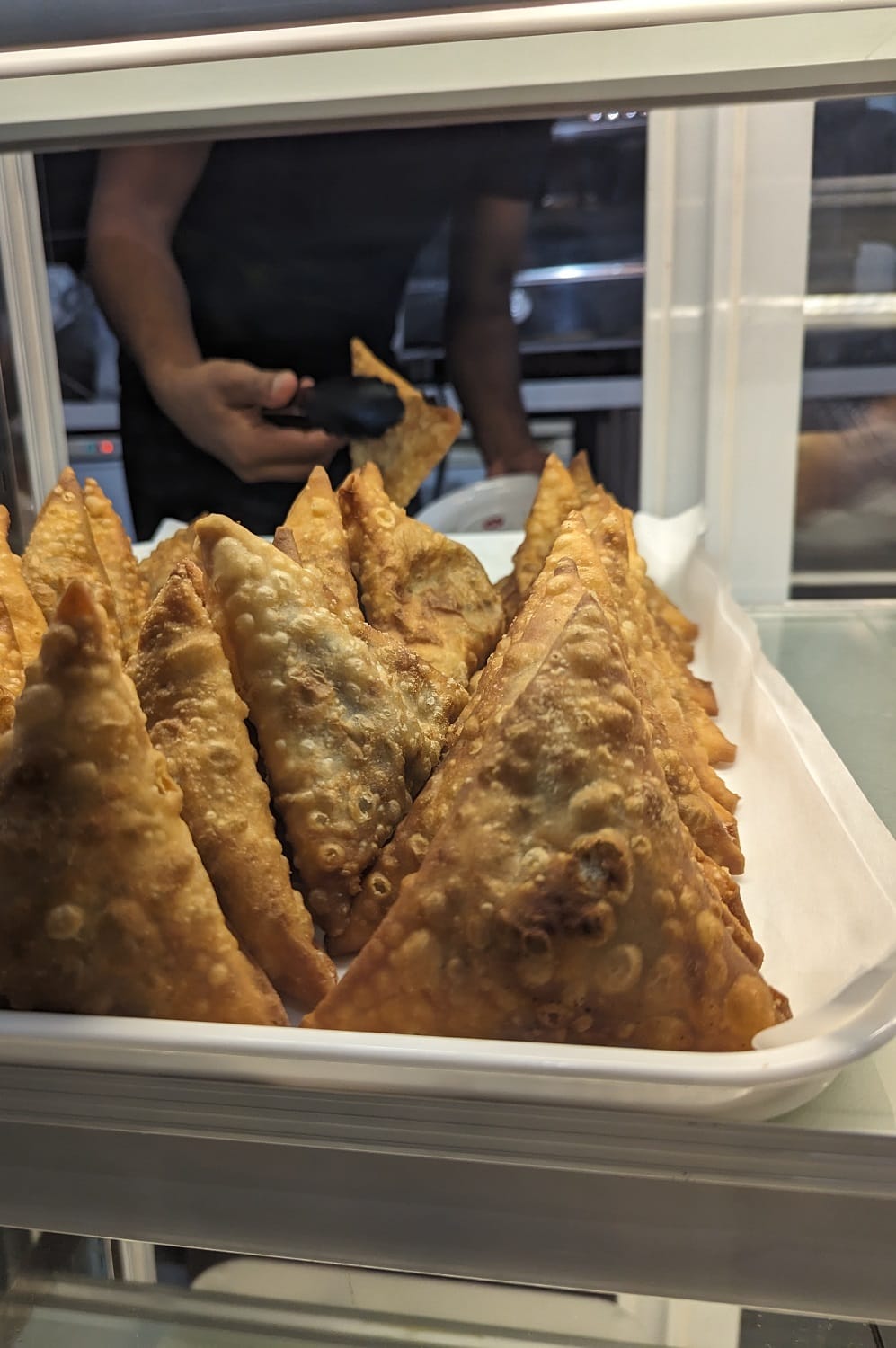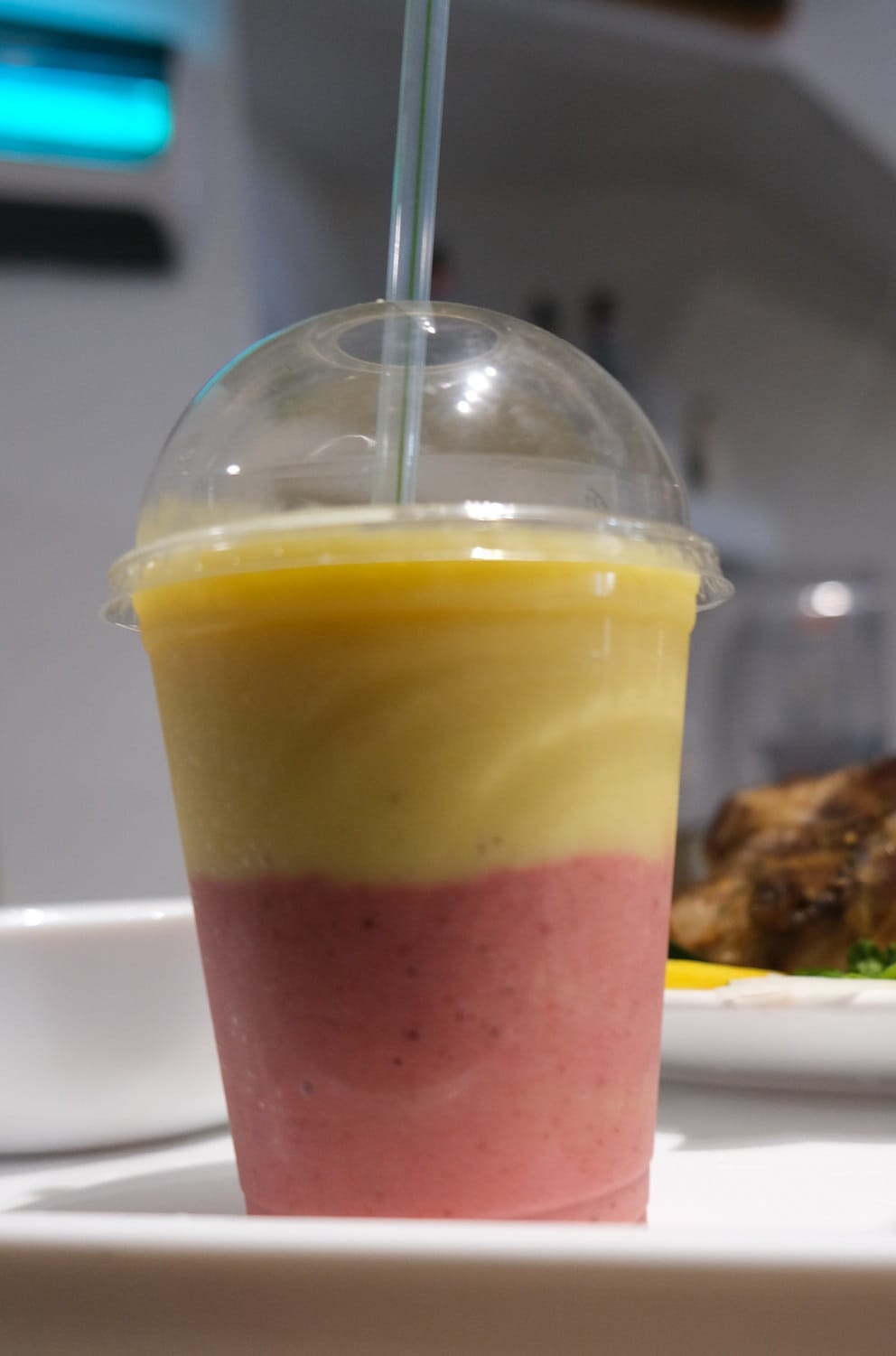Dean: For Those I Love’s righteous anger cannot be faked
"Carving the Stone" is a gritty, gripping piece of work forged in fury and frustration at a darkening in the Dublin atmosphere.
“Samosa is 90 percent similar to restaurants in Somalia,” says owner Hamza Tahir. The aim, he says, is to make a place where people can mix.

When Hamza Tahir opened the new restaurant Samosa on 23 August, he did it a little differently.
By tradition, he should have invited a small group in and asked them to pray for the business to succeed, said Tahir, one of the owners, sat at a table recently in one of the private dining rooms downstairs.
But instead, they threw open the doors to all customers and cut everything on the menu to half price, he says. So, chicken suqaar was €6 rather than €12, and lamb shank was €7 not €14.
Tahir said that confused some of his Somali customers, who seemed worried for him: “Five euros for this dish?! You’re losing money!” He reassured them, he said. “No, we are not losing money, it’s a grand opening.”
Inside, the new decor is made of earthy tones and relaxed. Copper light shades and simple wooden furniture.
Outside on Dorset Street Upper, between a charity shop and a hotel, the newly painted shopfront is a glossy brown. “Samosa, Somali traditional cuisine,” reads the golden typography.
“We named the place Samosa because that’s the only dish international people know from our menu,” said Tahir.
“Samosa is 90 percent similar to restaurants in Somalia,” Tahir says. But the aim, he says, is to make a place where people can mix. “That is the most challenging part.”
Tahir grew up in Borama in Somaliland, he said.
After a war of independence, Somaliland declared itself independent from Somalia in 1991 – though it’s not internationally recognised as an independent state, it is a de facto one.
He moved to Dublin six years ago. His dad was already here, he says. He moved to Ireland first, to work in 2003, says Tahir.
At the time, Somalia was a conflict zone. “His target was to bring us here,” says Tahir.
In 2018, his father finally got the right to family reunification – to bring his closest family to join him – and the Tahir family moved to Ireland.

Tahir had studied business in Somalia. Here, he dreamed of medicine, he says. That meant getting his leaving certificate in Ireland, which he studied for through the pandemic.
But rather than a spot to study medicine, he got a place to pursue engineering at Trinity College Dublin. One semester in, he found himself wondering if he should stick with it.
He changed tack. “Instead of getting a job in five years time, I can get a job now, save money, work on my ideas, then go for it,” said Tahir.
An early business plan for a bubble tea shop morphed, he says, into a restaurant.
Three weeks after opening, on Thursday 14 September, just after lunchtime, all of the restaurant’s nine tables were taken.
A waiter ferries big silver plates with feedho, or lamb ribs, past a wash of conversations in Somali, Arabic, and English.
Through doors at the back, the restaurant has two more rooms just for women to eat in, if they want. One behind the kitchen, one downstairs.
Many Muslim women don’t like to eat with men, said Tahir. “But some of them don’t mind.” So they accommodate that.
Tahir says Somalis prefer asking at the counter what is available, rather than worrying with a menu board. But they have a menu to include others too.
Word of mouth is also how many customers learnt about the restaurant. “One of my friends told me a new Somali restaurant was opening and they told me the location and I came,” said Abdirahman Abdi, already a regular.


The lunch menu has five main dishes made with chicken, lamb or beef, and a choice of three sides: pasta, rice or sabaayad, a Somali flatbread.
Samosa also has a small breakfast menu and food to go, such as beef, tuna or veggie samosas – or bur, a fried triangular bread, which is a popular street food.
Drinks include regular americanos, lattes, and cappuccinos, as well as mango or strawberry smoothies, or a combination of both called “mushakal”. And tea – but not an English blend, rather one that is milky and gingery.
They’re willing to accommodate special food requests, said Tahir.
Plates are a notch bigger than most places. Any dish on the lunch menu comes with a bed of a side of your choice, meat on top of it, and an extra plate of lettuce salad and maraq or somali soup, which is a kind of broth.
Depending on the customer, they may dig in with their right hand or with cutlery.
Last Saturday, the tables were taken with a group of friends scrolling at their phones while they waited for food. Beside them, a trio of middle-aged white-collar workers talk politics and journalism over tea.
At the back of the salon is a parked row of prams. On one side was a family of five, three adults, one kid, one toddler. On the other side was a group of mums. Both tables were balancing eating and feeding.
The restaurant makes Abdillahi Adnan, another customer, feel connected to home, he says. “If I see a lot of diverse people coming into the restaurant, it makes me feel more comfortable.”
Adnan says the restaurant will bring more diversity of food to Dublin and that’s something he wants to see. “I would encourage everyone to come, explore and test the food out,” he says.